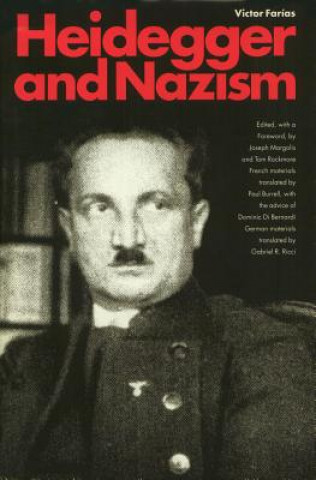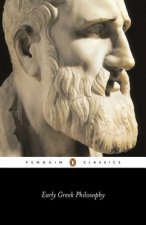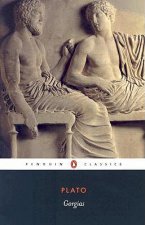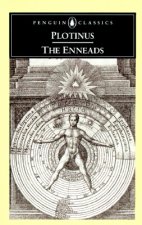
Kód: 04946323
Heidegger and Nazism
Autor Victor Farias
Originally published in a French translation in 1987, this controversial work has received a tumultuous reception throughout Europe and continues to be the object of intense debate. In this first English edition, Victor Farias tra ... celý popis
- Jazyk:
 Angličtina
Angličtina - Vazba: Brožovaná
- Počet stran: 368
Nakladatelství: Temple University Press,U.S., 1991
- Více informací o knize

986 Kč
Dostupnost:
50 % šance Máme informaci, že by titul mohl být dostupný. Na základě vaší objednávky se ho pokusíme do 6 týdnů zajistit.
Máme informaci, že by titul mohl být dostupný. Na základě vaší objednávky se ho pokusíme do 6 týdnů zajistit.Prohledáme celý svět
Mohlo by se vám také líbit
-

Heidegger And The Jews
728 Kč -

Heidegger and the Jews - The Black Notebooks
675 Kč -

Martin Heidegger
953 Kč -

La Vie Parisienne: Covers and Cartoons, 1917-1922
903 Kč -

Drawings
419 Kč -

Fascism
614 Kč -

Yoga of Power
428 Kč
Darujte tuto knihu ještě dnes
- Objednejte knihu a zvolte Zaslat jako dárek.
- Obratem obdržíte darovací poukaz na knihu, který můžete ihned předat obdarovanému.
- Knihu zašleme na adresu obdarovaného, o nic se nestaráte.
Informovat o naskladnění knihy
Zadejte do formuláře e-mailovou adresu a jakmile knihu naskladníme, zašleme vám o tom zprávu. Pohlídáme vše za vás.
Více informací o knize Heidegger and Nazism
Nákupem získáte 99 bodů
 Anotace knihy
Anotace knihy
Originally published in a French translation in 1987, this controversial work has received a tumultuous reception throughout Europe and continues to be the object of intense debate. In this first English edition, Victor Farias tracks the career of Martin Heidegger - one of the most influential figures in twentieth-century philosophy - and documents his intimate involvement with Nazism for much of his professional life. Although scholars have long known about Heidegger's early commitment to National Socialism, it was generally thought that he became disenchanted with Hitler well before the outbreak of World War II. After more than a decade of solitary study in a variety of archives, Farias presents a carefully constructed case in which he reveals Heidegger's initial adherence to Hitler's Nazism and his subsequent development of a more personal version of National Socialism. Heidegger's devotion to those themes was always at the center of his mature thought, appears to have preceded his election as rector of the University of Freiburg, and was sustained to the end of his life. Farias examines with great care and persistence the charge that Heidegger, who died in 1976, was a life-long anti-Semite. He notes that the philosopher praised Hitler to his colleagues and refused, even after the war, to criticize Nazi atrocities and genocide, or to recant his earlier Nazism. While Heidegger previously had appeared at worst naive by his acceptance of the Third Reich, Farias' evidence shows him to be the only major philosopher who freely embraced Nazism - the undisputed example of absolute evil in modern times. This damage to the official myth about Heidegger's involvement raises questions about the relationship between politics and philosophy, about the presumed link between philosophy and virtue, and about what we may understand by the betrayal of reason in our time. "Heidegger and Nazism" transforms the setting in which Heidegger's standing will henceforth be assessed. From his earliest intellectual and emotional influences to the last posthumously published interview with Der Spiegel, Heidegger's connection to National Socialism is shown to be a matter of conviction rather than necessary compromise as apologists still contend. Farias shows the reasonableness of linking the ideology and the philosophy and suggests where to probe to draw out detailed connections. The book forces us to ponder the question of whether certain philosophical strategies and doctrines - particularly associated with Heidegger's existential hermeneutics and the effect of his themes on the development of deconstruction - are not merely indefensible but peculiarly hospitable to the kind of "principled" falsification that fascists require. Providing the context for a close re-reading of Heidegger, this significant and historic work challenges the philosophical community to assess the full import of Heidegger's life on his influential conception of philosophy and his resolution of particular philosophical problems. Author note: Chilean scholar Victor Farias teaches in the Latin American Institute at the Free University of Berlin. A one-time student of Heidegger's, he holds a Doctorate in Philosophy. Joseph Margolis is Laura Carnell Professor of Philosophy at Temple University. Tom Rockmore is Professor of Philosophy at Duquesne University.
 Parametry knihy
Parametry knihy
Zařazení knihy Knihy v angličtině Humanities Philosophy History of Western philosophy
986 Kč
- Plný název: Heidegger and Nazism
- Autor: Victor Farias
- Jazyk:
 Angličtina
Angličtina - Vazba: Brožovaná
- Počet stran: 368
- EAN: 9780877228301
- ISBN: 0877228302
- ID: 04946323
- Nakladatelství: Temple University Press,U.S.
- Hmotnost: 526 g
- Rozměry: 229 × 154 × 21 mm
- Datum vydání: 28. February 1991
Oblíbené z jiného soudku
-

Meditations
279 Kč -

The Myth of Sisyphus
169 Kč -

Why I Am so Clever
91 Kč -

Meditations
285 Kč -

Republic
283 Kč -

Beyond Good and Evil
276 Kč -

Gay Science
322 Kč -

Aphorisms on Love and Hate
89 Kč -

Beyond Good & Evil
356 Kč -

Meditations on First Philosophy
276 Kč -

Intellectual Life
478 Kč -

Socrates' Defence
89 Kč -

Discourses, Fragments, Handbook
323 Kč -

Ride the Tiger
518 Kč -

Thus Spoke Zarathustra
302 Kč -

Fear and Trembling
276 Kč -

Birth of Tragedy
89 Kč -

Early Greek Philosophy
356 Kč -

Groundwork for the Metaphysics of Morals
276 Kč -

Gorgias
232 Kč -

Brief History of Analytic Philosophy - From Russell to Rawls
955 Kč -

On Duties
335 Kč -

Discourses and Selected Writings
323 Kč -

Nicomachean Ethics
143 Kč -

Nausea
276 Kč -

Letters from a Stoic
276 Kč -

Meditations
502 Kč -

Simulacra and Simulation
416 Kč -

Phenomenology of Spirit
545 Kč -

Twilight of the Idols with The Antichrist and Ecce Homo
143 Kč -

On Liberty, Utilitarianism and Other Essays
223 Kč -

On the Suffering of the World
136 Kč -

Human Condition
514 Kč -

On the Shortness of Life
236 Kč -

Existentialism Is a Humanism
223 Kč -

Think
302 Kč -

Guide to the Good Life
460 Kč -

How To Be A Stoic
465 Kč -

The Symposium
235 Kč -

Human, All Too Human & Beyond Good and Evil
143 Kč -

At The Existentialist Cafe
277 Kč -

Undiscovered Self
708 Kč -

Passions of the Soul and Other Late Philosophical Writings
302 Kč -

The Trouble With Being Born
322 Kč -

Leviathan
143 Kč -

City of God
449 Kč -

Ecce Homo
249 Kč -

Enneads
410 Kč -

On Friendship
196 Kč
Osobní odběr Praha, Brno a 12903 dalších
Copyright ©2008-24 nejlevnejsi-knihy.cz Všechna práva vyhrazenaSoukromíCookies


 Vrácení do měsíce
Vrácení do měsíce 571 999 099 (8-15.30h)
571 999 099 (8-15.30h)